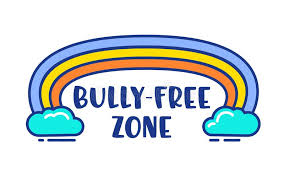For most kids, summer is filled with fun and adventure. Most parents, however, still have to work, which means their children will have a lot more free time on their hands. Whether kids are at summer camps, babysitters, or home with siblings, there tends to be less supervision which can be concerning in regards to the potential for bully behavior. It’s never a fun subject, but one that needs to be addressed at least a few times a year.
First,
kids need to know what bullying is. It’s not always clearly defined. Dan
Olweus, creator of the Olweus Bullying Prevention Program, defines
bullying in his book, Bullying at School: What We Know and What We Can Do,
"A person is bullied when he or she is exposed, repeatedly and over time,
to negative actions on the part of one or more persons, and he or she has
difficulty defending himself or herself."
Direct
bullying is the easiest to detect. It includes hitting, kicking, shoving, name-calling,
and using threatening or obscene gestures. Indirect bullying is much more
surreptitious. Often bullies will get someone else to do the bullying for them.
Rumor spreading, ostracizing, and Cyber-bullying (using email, social media
sites, and text messaging) can be particularly difficult for adults to monitor.
Like
most things in life, signs of bullying and the roles people play are rarely
clear-cut and when kids are involved in bullying, they often play more than one
role. Kids can bully others, they can be bullied, or they may witness bullying.
However your child is involved, it’s important to encourage them to speak to a
supervising adult if they are bullied or see others being bullied. If the adult
doesn’t help, find another grownup and keep telling until the bullying stops.
Ideally, adults at camps or at home will give comfort, support, and advice even
if they can’t solve the problem directly.
Although
parents may not be with their children during the day, they can still help
prevent bullying.
Checking in often, talking with the kids, and asking about
friends and any concerns is proactive and preventative. If they child seem
reluctant to open up to you, encourage them to talk to another responsible
person that you, as a parent, trust. Get your kids involved in things they like
such as sports, hobbies, and community activities. Also, instruct your kids to
stay away from places where bullying happens. Most bullying happens when adults
aren’t around.
If
there is no adult around, children of all ages need to know how to stand up for
themselves. Advise your kids to look at the kid bullying and tell him or her
assertively to stop in a calm, clear voice. If speaking up seems too hard or
not safe, the best thing for anyone being victimized to do is to walk away and
stay away.
There
is no silver bullet to eradicate bullying but we can reduce existing bullying
problems, prevent the development of new bullying, and foster better
relationships at school, at home, and in summer camps by being well informed
and involved.
For
more information on the Olweus Bullying Prevention Programs, visit, www.violencepreventionworks.org.
Other resources include, http://www.stopbullying.gov.
Contact
Margaret Lavin at elementarydays@gmail.com.


No comments:
Post a Comment